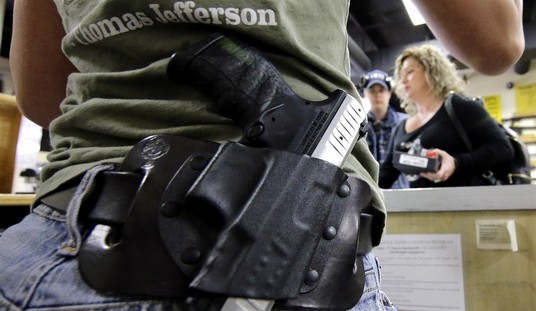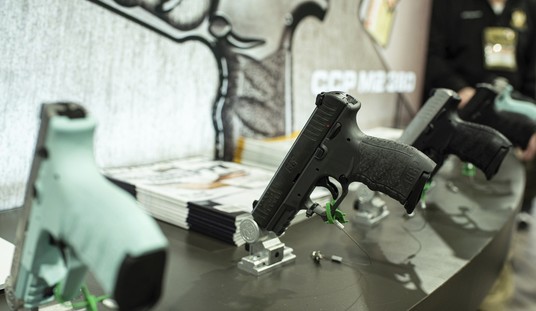Guns have always played a pivotal role in American history. They’ve been used to hunt, to protect, and most importantly—to defend the country in times of war. Without them, the Revolutionary War, War of 1812, and subsequent World Wars could have taken a turn for the worst, altering the U.S. into something unrecognizable, something void of democracy.
After four tours of duty, the distinction of America’s most lethal sniper, and the publication of his New York Times bestselling autobiography, American Sniper, Navy SEAL Chris Kyle wanted to pursue his passion for history and share his knowledge with readers. In his own words, “[f]irearms opened the frontier, helped win our independence, settled the West, kept law and order, and defeated tyranny across the world.”
His newest work, American Gun: A History of the U.S. in Ten Guns, was still being written at the time of his tragic death. The book selected ten iconic guns to help tell the story of America’s fight for freedom. The chosen guns covered a wide-range of American history, from the American long rifle (used against the British), to the M-16 platform rifle that Kyle used during his service in Iraq.
Chris’s wife, Taya Kyle, made the decision to continue her husband’s efforts, and immediately received help from countless supporters who wanted to assist in the publishing of American Gun.
“We’re really blessed to have not only Harper Collins and William Doyle, but our friends,” said Taya Kyle in an interview with Townhall. “Everybody was willing to come to the table no questions asked, wanting nothing in return, and pretty much dropping everything to get it done…it was really a tribute to Chris. It was amazing how willing they were to be involved.”
When Taya Kyle along with writers William Doyle and Jim DeFelice published American Gun posthumously, it was clear that the book would be a historical telling of America—not a commentary on contemporary gun politics.
“American Gun wasn’t intended to be political”, Taya said. “Certainly Chris didn’t intend for it to be and I don’t intend for it to be. It was a look through Chris’s life and experiences, and what he reflected on. You know it came together in a perfect idea for a book that shows humanity through time. This is our country through time. What he [Chris] did, is what they’ve been doing since the Revolutionary War, onwards.”
“It’s the tools and manufacturing process that changes, humanity is the same. You know it doesn’t matter what day, age, or time you live in—there will always be evil. And there will always be people trying to find the best tool to protect themselves. The tool humanity uses to adapt is always evolving.”
Taya Kyle also spoke briefly on personal responsibility and explained why regulating firearms isn’t the solution.
“We have to make sure that our perspective doesn’t get skewed, based on someone else’s agenda. If you look past one or two horrific events, I think you have a clearer vision of people using guns. You watch the number count for a billboard that has ‘number of deaths this year on Texas roads” and I realized that we find cars to be a useful tool. And when somebody dies in a car we don’t hold the car accountable, we hold the driver accountable. And we do that because we are not willing to get rid of our car we find it to be a useful tool to serve our purpose.”
“For a lot of America guns are the same. We’re responsible, we use them appropriately, we take the proper classes, proper training, we teach our children to be accustomed to them so they don’t have accidents. Much the same way when you teach your children how to drive. Those people who are against guns don’t see them as the value of the tool. When people look at these car accidents they look at the statistics, what happened? Drunk driving, texting while driving, talking on the phone while driving. They look at safety issues, so it should be the same with guns. I don’t think that regulation is a solution I think that personal responsibility is. We’re not blaming the car, we’re not getting rid of them.”
“We believe we’ve created something that delivers more entertainment than the textbooks we’ve all been taught to read. In the end these people were doing the best they could to raise their families. But in later chapters that deal with presidents you realize how much the office has changed. Franklin Roosevelt said when he sent his troops in ‘[i]f anything goes wrong today, the blame is all mine, it’s not on the troops.’ When do you see leadership like that today?”








Join the conversation as a VIP Member